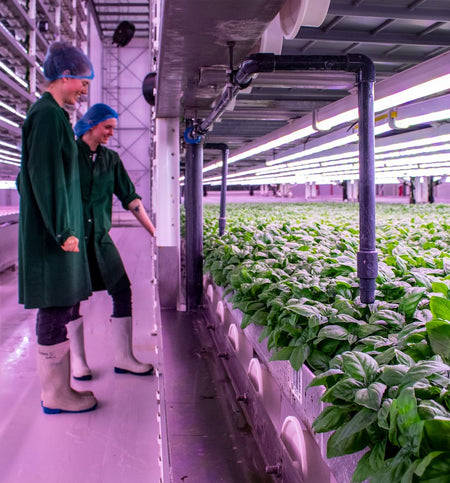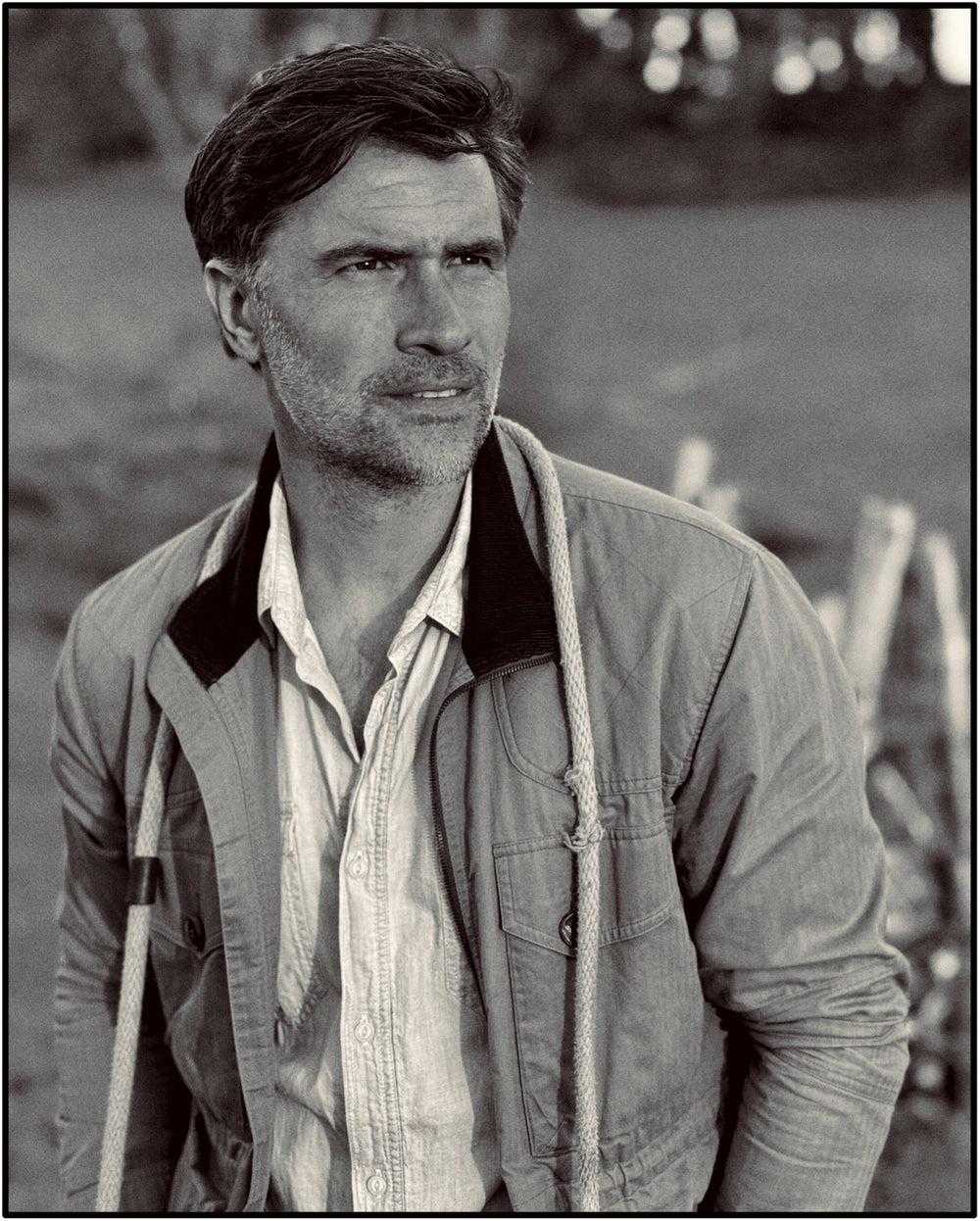‘Vertical farming is a form of controlled environment agriculture,’ Romy explains. ‘That means that we control all of the input that the plants receive; temperature, nutrients, light and humidity, for example. We do this all in a sealed environment which, in our case, is repurposed buildings.’ The benefits of traditional farming have long been hailed, particularly when they result in home-grown produce made on organic land. But what about the benefits of vertical farming? How do they compare? ‘There are so many benefits to vertical farming,’ continues Romy. ‘You can grow and harvest crops all year round, every single day, which reduces the need for import. Vertical farms use 93% less water than traditional farms because we recycle the water using a hydrochloric water system – and we also recapture any water not used up by the plant. And a huge draw for many companies that buy our basil is that we don’t have to use any herbicides or pesticides because everything is grown inside, in a controlled environment.’
As well as supplying all of the basil used in every single one of our products at BAZ&CO, Jones Food Company supplies basil to every single supermarket in the UK, apart from two. Before COVID-19, their basil was in 3 million sandwiches a week. So, why do we and other companies choose to work with produce grown in a vertical farm over that grown on a traditional farm?
‘You can grow really high quality, nutritious produce and deliver it to your customer in 12 hours rather than cutting it and then flying it around the world, which is a huge advantage,’ explains James. ‘We’re growing our basil 365 days a year, so you can control every part of the life of the plant to make it the perfect specification. We can control everything, from the look of the plant to its taste, nutritional value, size of leaf, size of stem and more.’ And what about the benefits of us using whole basil leaves grown in the UK over something more artificially manufactured? ‘Our basil is going from our farm and into BAZ&CO bottles and onto the skin of the customer. That means that consistency is hugely important, which is something we can provide. It goes straight onto the skin, so it needs to be very clean – with our basil, we can cut it and be safe in the knowledge that its nutritional qualities are maintained. The plants thrive more than they do in a traditional farm because we’re effectively giving it its best holiday before it’s cut and used. It is grown in perfect conditions, it’s got what it wants to eat all the time, it has long, sunny days and comfortable temperatures. Whereas if you’re growing it on a field, you don’t get that – you’re competing with changeable conditions.’
And you’d think that the energy resources needed to maintain a vertical farm might outweigh the benefits of everything else that it achieves, but you’d be wrong – especially when it comes to Jones Food Company. ‘We use renewable energy and solar panels to power everything. We’re currently investing in wind as an energy source and are looking into hydrogen fuel cells to power our new farms,’ says James.
But how do traditional farmers feel about these new kids on the block? Have James and his team felt any sort of animosity from them? ‘The important thing is that we’re not trying to grow crops that are readily available all year round in the UK. There’s no point,’ Romy says. ‘We’re targeting the crops that we import six months of the year. It blows my mind that we’re picking up coriander that’s been grown in Kenya, Spain, Morocco. There’s no way that we want to take away from crops and products that are grown in the UK by traditional farmers – that’s not what we’re trying to do.’
If you’ve ever seen a vertical farm, you’ll know that it’s essentially an indoor space where herbs and plants are stacked vertically on top of eachother to make the most of their space. These indoor rooms have no frills; they do exactly what they’re meant to. It therefore means that some outsiders may assume that everything going on within a vertical farm is artificial when in actual fact, it’s the opposite. ‘We’re hyper aware of making the idea of vertical farming more tangible for the consumer,’ explains Romy. ‘People wonder if it’s the same product, if we’ve pumped it up with anything. It’s really important to emphasise that we’re not doing anything weird or anything different to traditional farming. For hundreds of years, farming has been about adapting the environment to make enough yield to support the population in that area, and this is another example of that. We’re putting the crops in the correct temperature and protecting them from pests. We’re creating completely clean produce which is exactly the same as you’ll get anywhere else, it just hasn’t been flown hundreds and hundreds of miles and been coated in god knows what to make sure that it has the same shelf life. Working with BAZ&CO is a perfect opportunity to speak to the customer who is using the product, to get them to understand exactly what we’re doing.’
If you’re still curious about vertical farms or want to share your stories with us, feel free to drop us a DM on Instagram @bazandcoskincare – we’d love to hear from you.
Thank you to Romy and James at Jones Food Company for talking to us!




